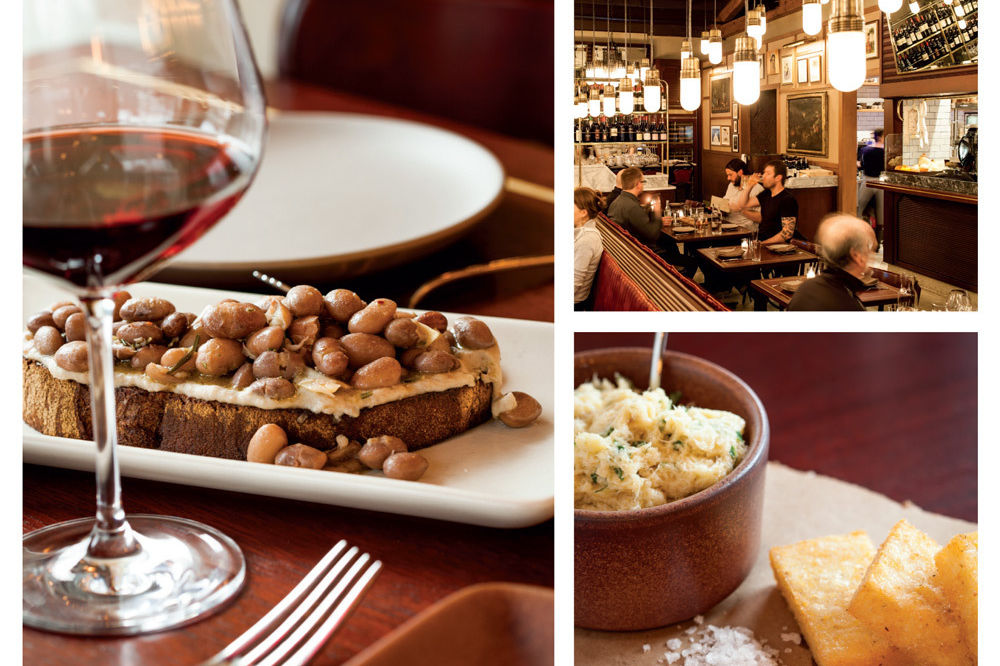Reopening or Rebirth? What to Expect from Ava Gene’s After 3 Years Away
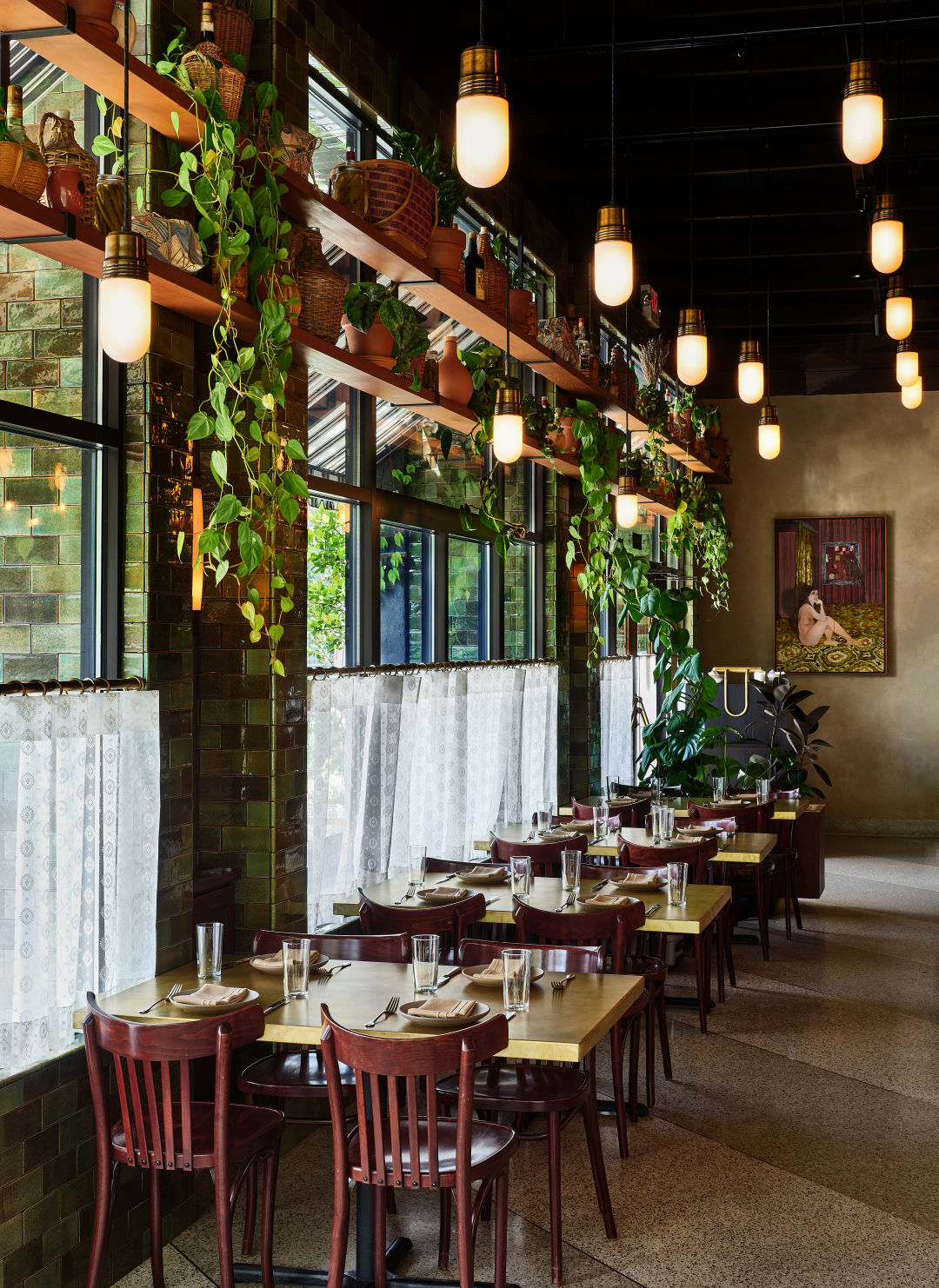
Ava Gene's dining room
The question of whether Portland’s food scene is “back” still looms large. Mostly, we’re seeing the emergence of something new instead of a return to what once was. Ava Gene’s reopening on March 17, Portland’s biggest and longest-delayed, toes the line of both.
When it opened in 2012, Ava Gene’s jolted the industry, turning appetites toward stylish, vegetable-forward dining. In a town of scrappy DIY operations, it was a marble-clad powerhouse with a deep wine cellar and casual but refined service, backed by dough from Stumptown Coffee founder Duane Sorenson's sale of an ownership stake in his coffee empire. It was an immediate industry leader, winning Portland Monthly’s 2013 Restaurant of the Year and ranking fifth on Bon Appetit’s Best New Restaurants in America list. Portland lusted for reservations and jobs among its ranks—a buzz that ran all the way up to COVID shutdowns.
But its reopening marks another turn in the industry.
On the surface, the revamped Ava Gene’s (3377 SE Division St) should look and feel the same. The menu will return to the hyperfocused hybrid of pan-Italian classics and Pacific Northwest produce—clean and light, acid-punched grain salads, toothsome handmade pastas assembled with restraint and a rigor for details. Cicoria, the Midwestern-inspired pizza tavern next door that has lived in fits and starts, will reopen at the same time.
But behind the scenes, things have shifted dramatically. The three-year gap in business coincides with a major shift in restaurant culture, a change in the restaurant's ownership, and an overhaul of the company’s human resources department.
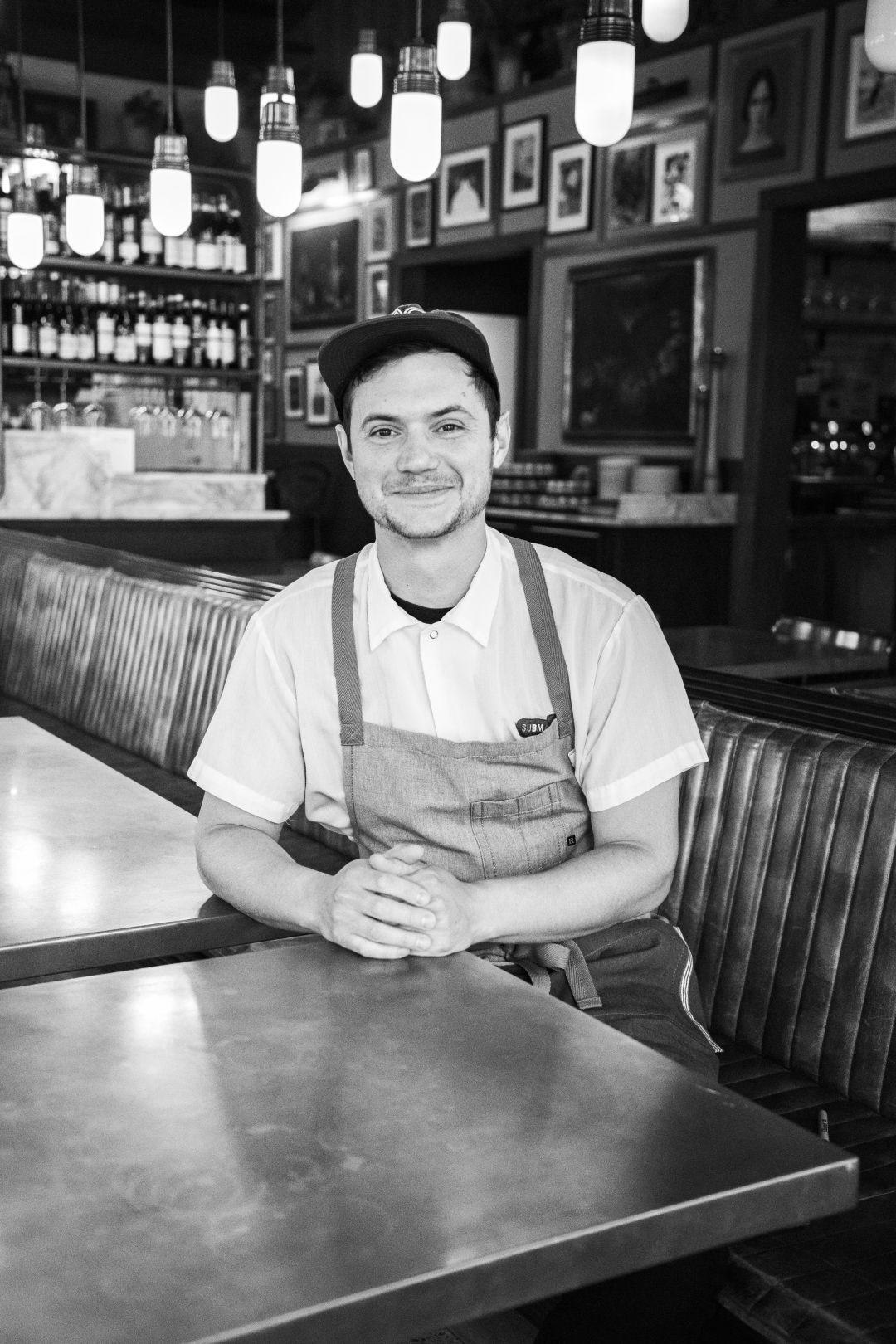
Co-executive chef Ross Effinger
A team of former Ava Gene’s chefs and new talent pulled from New York hot spots will head up the retooled staff. The goal is to carry on the legacy while creating a safe and equitable workplace, to once again be an industry leader.
Ava Gene’s was named after Sorenson’s daughter. A few years after opening, founding chef Joshua McFadden and business partner Luke Dirks bought Sorenson out, forming Submarine Hospitality group. In the years that followed, keeping track of Submarine’s projects was dizzying. The group grew too fast and, in doing so, spun out of control. Last May, Submarine was purchased by Sortis Holdings, a local investment firm with a large and growing portfolio of Portland restaurants and coffee shops.
Behind the scenes, McFadden has stepped away from day-to-day operations. He now works for Sortis as the company’s “culinary creative,” consulting on all of group’s restaurant projects, including but not limited to those under the Submarine umbrella, which includes Ava Gene’s, Cicoria, Tusk, and the Woodsman Tavern.
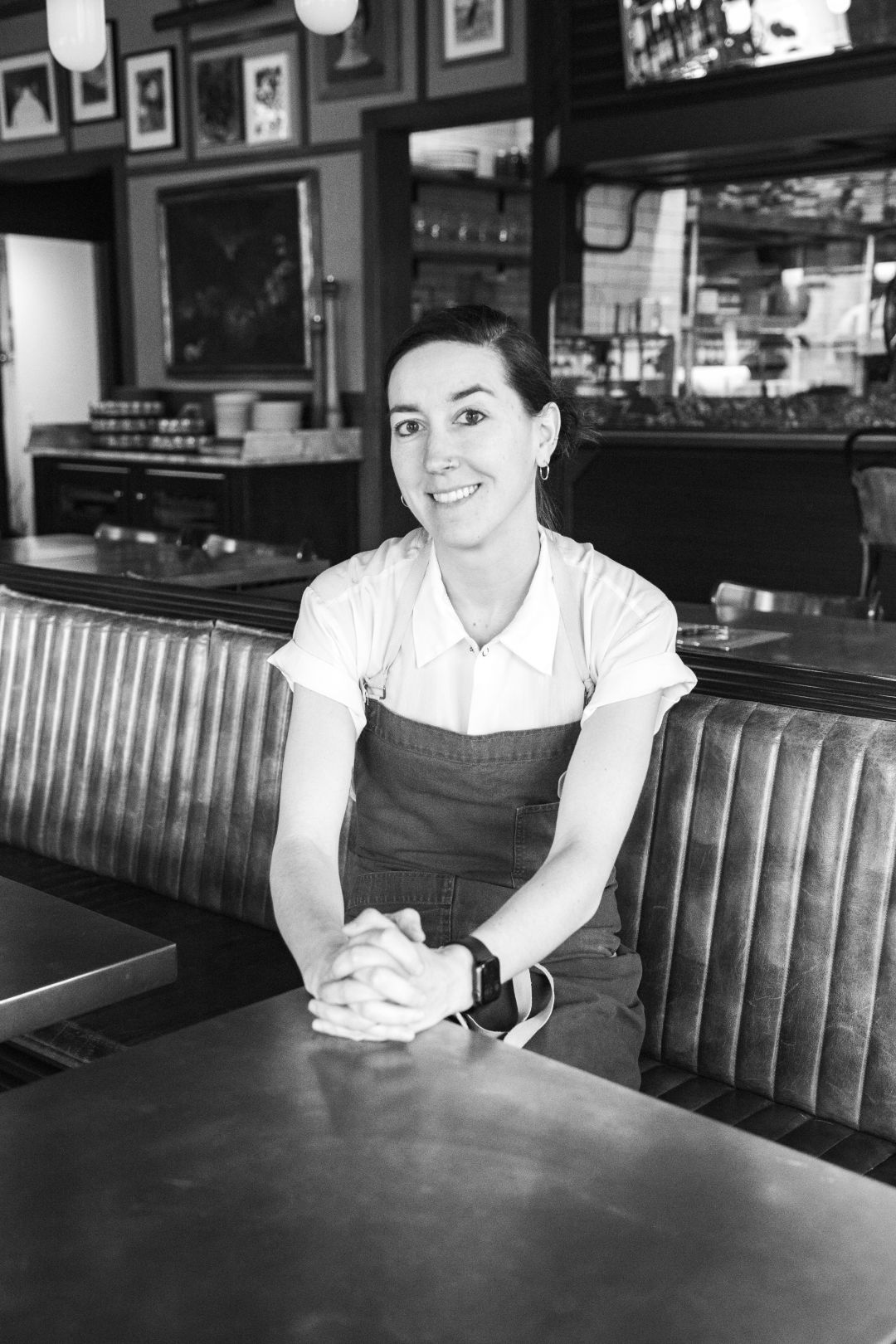
Co-executive chef Amelia Kirk
McFadden has long been the face of the restaurant, but Ava Gene’s has also belonged, figuratively, to countless cooks, chefs, servers, hosts, bartenders, sommeliers, and dishwashers. To call it one of the most influential Portland restaurants of the past decade is an understatement. The city is now filled with Ava Gene’s alumni–founded restaurants: the breakout Café Olli, Ruthie’s food cart, wine-focused Foster-Powell restaurant Street Disco, and North Portland pizza newcomer No Saint, to name just a few. If you weren’t on the payroll at some point, chances are you knew five people who were.
Ava Gene’s inspired a generation of cooks. It helped them shape their approach to food, and in turn, marked Portland’s dining landscape.
However, when such a machine gets off the rails—especially one that so many people have called their own, in one form or another—the fallout can be disastrous.
A few months into the pandemic, in July 2020, a series of claims against Submarine and its leadership surfaced. A wave of anonymous social media posts relayed by now-retired chef Maya Lovelace alleged a toxic culture, as reported by Eater PDX. Ava Gene’s was far from the only restaurant included in this event, but it functioned as an exemplar of restaurant workers demanding change in an outmoded industry. The allegations resulted in many employees leaving the company, most notably Dirks.
McFadden was accused of allowing a toxic work environment to fester under his leadership. He responded via a public letter on Instagram in which he acknowledged subpar working conditions, saying, “I know I must do better and have committed to this work.”
“I am putting the work in, in person, with the team to start to chart a path forward,” he told Eater PDX at the time. Requests for comment from McFadden for this story were declined.
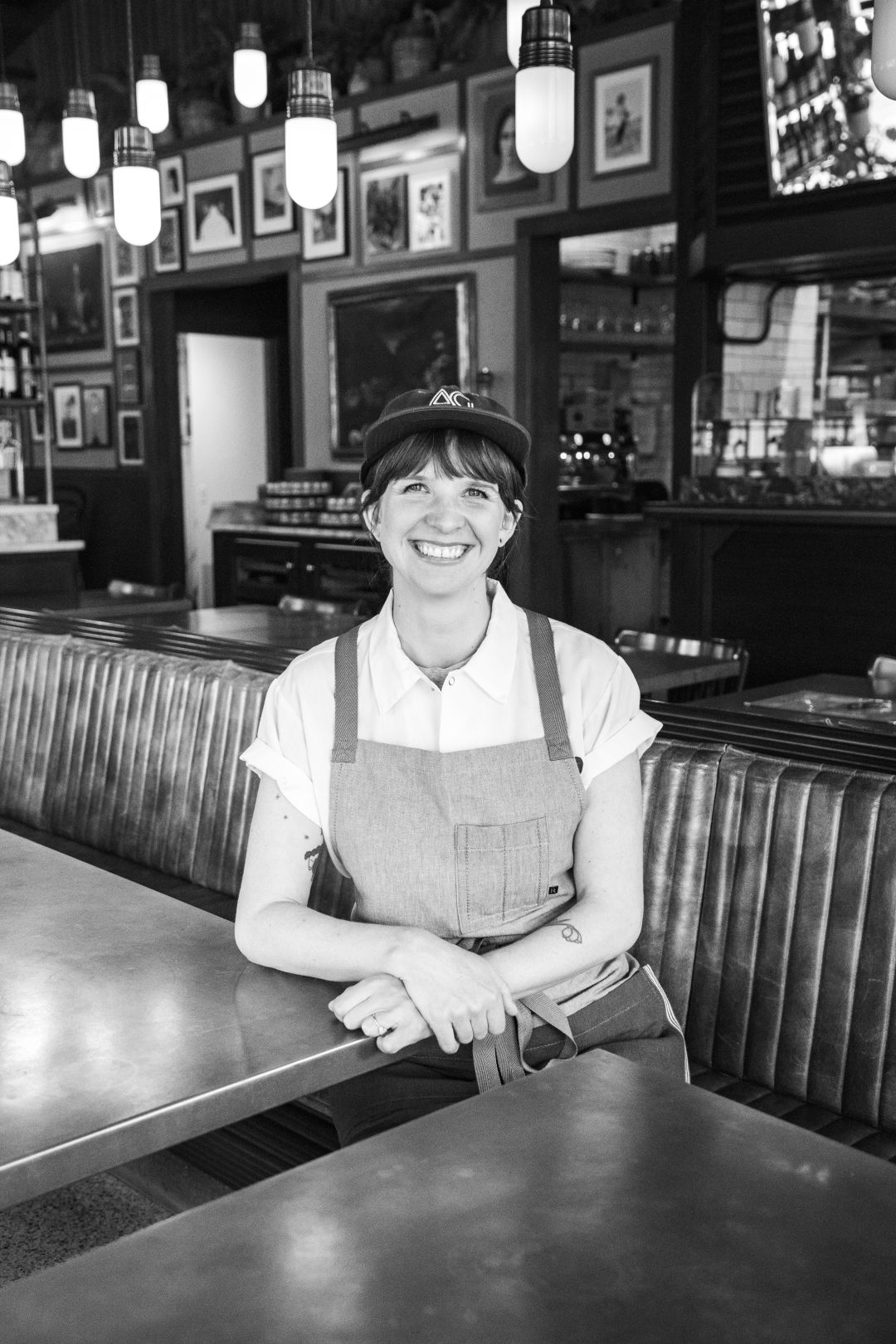
JoMarie Pitino, who helped build Ava Gene's pasta program, is returning.
That was almost three years ago. While other sit-down establishments paused in the pandemic but then returned, Ava Gene’s did not. Short of a stint as a pandemic walk-up market, Division Street Grocers, one of the city’s great dining rooms at the center of SE Division Street’s restaurant row has been empty ever since. Sortis, a company that identifies itself as “equal parts incubator, operator, and development platform,” took over rebuilding efforts just over nine months ago.
Instead of McFadden, a slew of culinary and managerial talent will head up operations.
Brookes Decker, Submarine’s current director of operations, who has now been with the company for five months, left a 15-year career managing top New York City restaurant groups to help reopen Ava Gene’s.
Ava Gene’s and Cicoria, which will operate as two restaurants under the same roof, will have two co-executive chefs: Ross Effinger, a previous Ava Gene’s chef, and Amelia Kirk, the former chef de cuisine of events at Michelin-star New York chef Ignacio Mattos’s extremely-in-vogue restaurant group (Estella, Corner Bar, Altro Paradiso).
JoMarie Pitino, who built Ava Gene’s handmade pasta program in the early days, is also coming back to roll out orecchiette and agnolotti. Effinger and Pitino, now a married couple, met as cooks at Ava Gene’s. After three years in Joseph, in Eastern Oregon, running their own pizza restaurant, they are back.
“I have a lot of strong feelings about this place not going away,” says Effinger, landing on the point that he wants to help “make it breathe again.”
Effinger and Kirk promise the food will be closely aligned with Ava Gene’s classics. The menu will rotate as it always has based on daily changing produce from local farms, whole-animal butchery, and Pitino’s pastas. The famous “Tuscan Cavalry” kale salad (McFadden has been credited with having helped bring the hearty green into fashion) will move over to Cicoria.
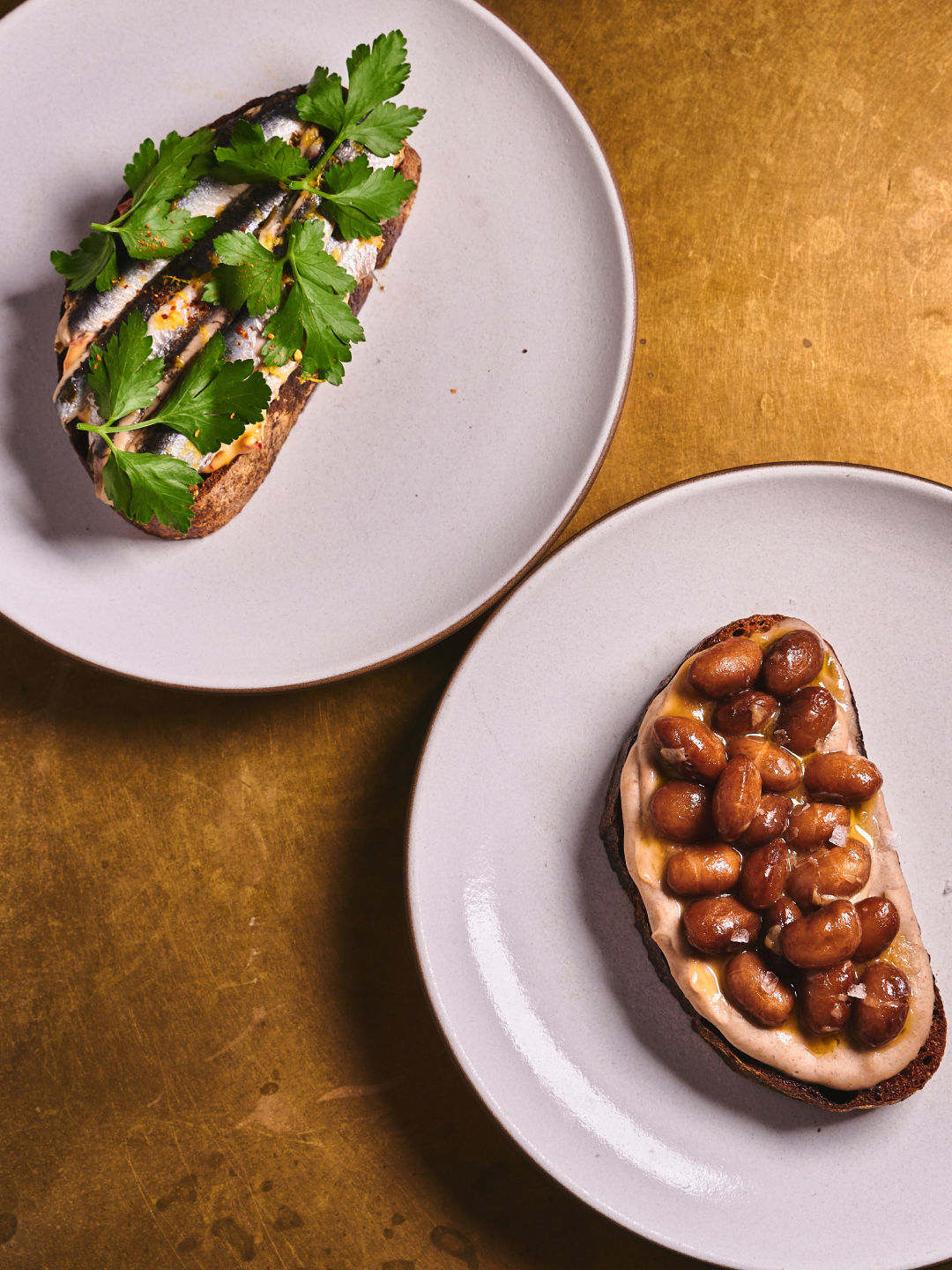
Ayers Creek barlotti bean toast and boquerones toast
Another icon, Ayers Creek Farm borlotti beans on toast, will have a limited resurrection. Essentially toast topped with herb-scented, smashed heirloom beans, the dish is an ode to the farmers growing the beans, Anthony and Carol Boutard. Recently, however, the couple sold their esteemed Gaston, Oregon, farm and retired. Once the stash of their dried beans is gone, Effinger says, the humble toast-that-could will retire as well.
With the food well covered, the major concern of reopening, Decker says, has been the significant restructuring within the company. Diversity training, a zero-tolerance abuse policy with several ways to anonymously submit complaints, and quarterly anonymous culture surveys are part of the group’s effort to create a healthy workplace culture. McFadden, a target of some of the 2020 accusations, is still involved with the company. He’s not in a managerial role—but is that enough?

Mafaldine cacio e pepe
For Kirk, being a part of changing what working in a restaurant means post-COVID was a crucial aspect of her taking the job. “You need to have a life in order to excel at what you do,” she says.
“The reason I worked at Ava Gene’s in the first place—from a food perspective—was because all the things that they said they were doing, they were actually doing,” says Effinger. “And I think that’s true from the restaurant group perspective now. I don’t think it’s performative. And I don't think it’s ‘You gotta say all the right corporate things.’ These are very real actions that everyone’s taking to do the right thing.”
Time will tell how these new systems perform in practice. At least in theory, one of Portland’s biggest restaurant groups now has more tools to foster a healthy and sustainable work environment than it had before.
“I wouldn’t be here if I didn’t believe that those [changes] were actually happening,” says Effinger.

